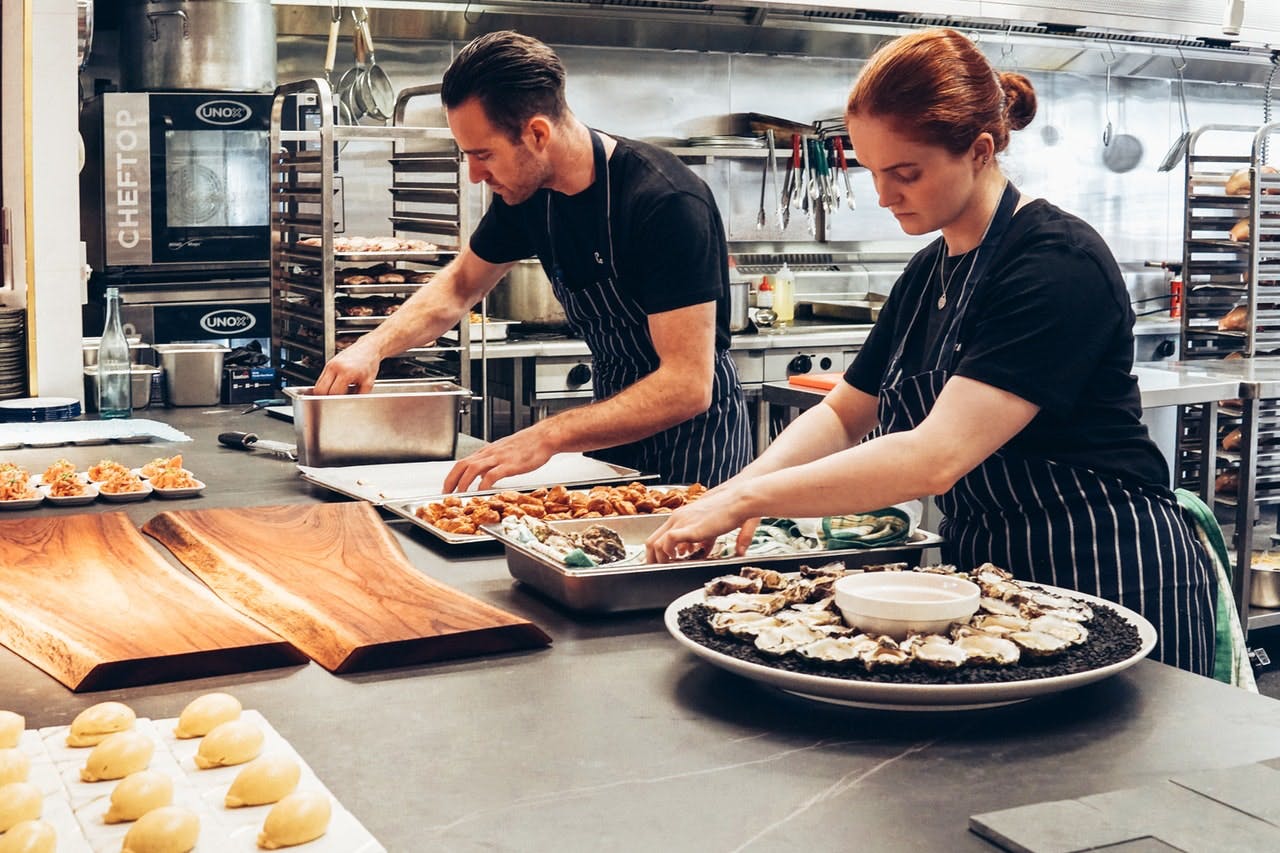Starting a restaurant business is no piece of cake. This requires meticulous planning, strategic execution, and a genuine passion for the art of gastronomy. In this article, we’ll discuss how to craft a restaurant experience that food lovers will crave. From creating a comprehensive business plan to crafting an irresistible menu, we’ll explore every aspect of launching a restaurant business that not only satisfies appetites, but also sparks a culinary revolution.
Define Your Concept
The first step in launching a restaurant business is to define a clear and compelling concept. A well-defined concept serves as the foundation upon which all other elements of your establishment will be built. Consider the cuisine type and niche market to target. Analyze market trends and identify gaps in the local culinary scene to create a concept that fills a demand. Whether it’s a farm-to-table eatery, a fusion of international flavors, or a focus on artisanal dishes, ensure your concept is unique and appealing.
Conduct Market Research

The crucial next step involves thorough market research, a vital ingredient for a successful restaurant business. By exploring the culinary landscape, market research helps identify trends, preferences, and demands of the target audience. Analyzing competitors’ strengths and weaknesses provides invaluable insights to create a unique selling proposition that distinguishes your establishment.
From understanding the latest food trends to balancing profitability with customer satisfaction through pricing strategies, market research equips your business with the knowledge and foresight necessary to navigate the ever-evolving food industry.
Create a Business Plan

After conducting market research, it’s time to craft a comprehensive one page business plan. A well-crafted business plan serves as a roadmap, guiding your business through every stage of your restaurant’s life cycle. Here are the most important aspects of a restaurant business plan:
- Executive Summary: A concise overview of your restaurant concept, vision, and key objectives.
- Market Analysis: Detailed insights from the market research, outlining your target audience, competitors, and positioning strategies.
- Menu and Culinary Approach: A mouthwatering description of your menu offerings, highlighting the unique flavors and culinary inspirations you’ll bring to the table.
- Organization and Management: An outline of the organizational structure, key management roles, and team members, demonstrating their expertise and contributions to the venture.
- Marketing and Sales Strategies: A comprehensive plan to promote your restaurant and attract customers, including social media, advertising, and partnerships.
- Funding and Financial Projections: A clear financial analysis, detailing startup costs, revenue projections, and anticipated expenses to demonstrate the restaurant’s financial viability.
- Operational Plan: A breakdown of day-to-day restaurant operations, covering everything from sourcing ingredients to staff training and customer service standards.
- Location and Facilities: Information about the chosen location, its advantages, and the facilities needed to accommodate diners comfortably.
- Risk Assessment: A thorough analysis of potential risks and challenges, along with contingency plans to mitigate them.
Choose the Right Location
The next critical step in launching your restaurant business is to choose the right location. A prime spot with plenty of people passing by and good visibility can be the secret ingredient for your restaurant’s potential success. Start by analyzing your target market and choosing an area that matches your concept, caters to your ideal customers, and is easily accessible to locals and tourists alike.
Consider factors, such as proximity to offices, residential areas, and popular attractions, as these greatly impact foot traffic in restaurants. Additionally, evaluate the competition nearby and determine if your unique offerings can stand out in the local dining scene.
Craft an Irresistible Menu
A well-crafted menu is the heart and soul of a restaurant business. Collaborate closely with seasoned chefs to curate dishes that not only embody your concept, but also entice the palates of your esteemed patrons. Remember, prioritizing top-notch ingredients and meticulous attention to presentation are indispensable factors for creating an unforgettable dining experience. Aim for a harmonious blend of beloved classics and inventive creations, all while considering dietary preferences and potential allergens.
Ensure Quality Staff and Service

The success of your restaurant business hinges not only on delectable cuisine, but also on the quality of your staff and service. Hiring a professional and passionate team is paramount. Seek out experienced chefs, adept servers, and welcoming hospitality personnel. Additionally, ensure that your staff embodies the very essence of your restaurant’s vision and delivers exceptional service to customers. Remember that a positive dining experience often leads to repeat business and valuable word-of-mouth recommendations, which play an instrumental role in cultivating a loyal customer base.
Create an Ambience to Savor
Another critical aspect that differentiates a memorable dining establishment from the ordinary is the ambiance it offers. Ensure that the interior design, decor, lighting, and music all align with your concept to create an inviting atmosphere that enhances the overall dining experience. The goal is to evoke emotions and take guests on an unforgettable gastronomic journey by harmoniously combining aesthetics and functionality.
Master the Marketing Game

No matter how outstanding your restaurant is, mastering the art of marketing is essential to attract and retain food lovers. Leverage social media platforms to showcase your culinary delights and engage with potential customers. Collaborating with local influencers and food bloggers can effectively amplify the reach of your restaurant’s unique offerings. Furthermore, offering promotions, loyalty programs, and hosting special events are proven ways to entice customers, fostering an atmosphere of excitement and generating buzz surrounding your establishment.
Embrace Technology for Efficiency
In this digital age, embracing technology is vital for optimizing restaurant operations and enhancing customer experiences. One effective strategy is to implement a user-friendly online reservation system, which will streamline the booking process for customers. Additionally, developing a mobile-friendly website that showcases your menu and contact information, and highlights the unique selling points of your restaurant can further enhance visibility and appeal to potential diners. Lastly, consider integrating digital payment methods for added convenience and efficiency.
Prioritize Food Safety and Hygiene

The success of a restaurant business is underpinned by its commitment to food safety and hygiene standards. Ensure that your kitchen and dining areas adhere to strict health regulations and protocols. Train your staff in proper food handling and sanitation practices to prevent foodborne illnesses. A spotless and hygienic environment not only protects your customers, but also boosts their confidence in your brand.
Seek Feedback and Continuously Improve
Finally, never underestimate the power of feedback in the restaurant industry. Encourage your customers to share their dining experiences, both positive and constructive. Act on feedback to continually improve your offerings, service, and overall dining experience. Engaging with your customers and showing that you value their opinions will foster a sense of loyalty and trust in your restaurant.
Starting a restaurant business that appeals to food lovers requires a harmonious combination of passion, dedication, and business acumen. By following these steps, you can create a dining establishment that leaves a lasting impression on the taste buds and hearts of food enthusiasts. Embrace innovation, prioritize quality, and continuously strive for excellence to ensure your restaurant becomes a haven for all those who crave an exceptional culinary experience.




